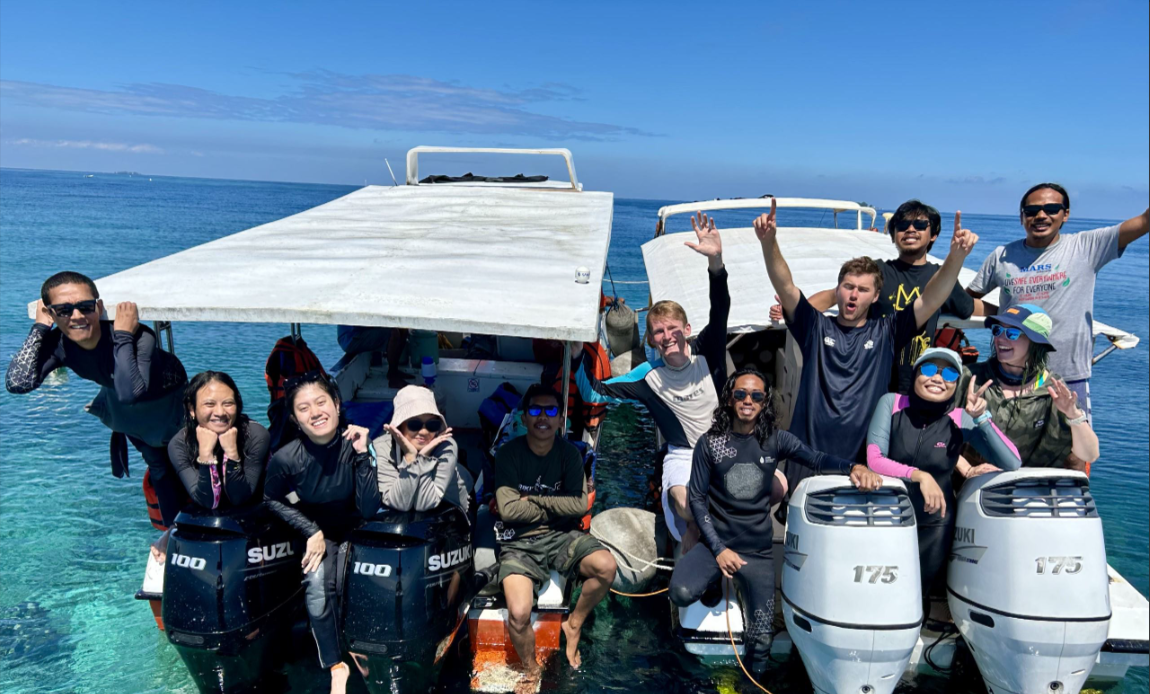
Fieldwork Fortnight: updates from the science team
Earlier this summer, an international team of scientists visited Indonesia to continue a three-year research programme on the ecological functioning of the restored reefs at Pulau Bontosua.
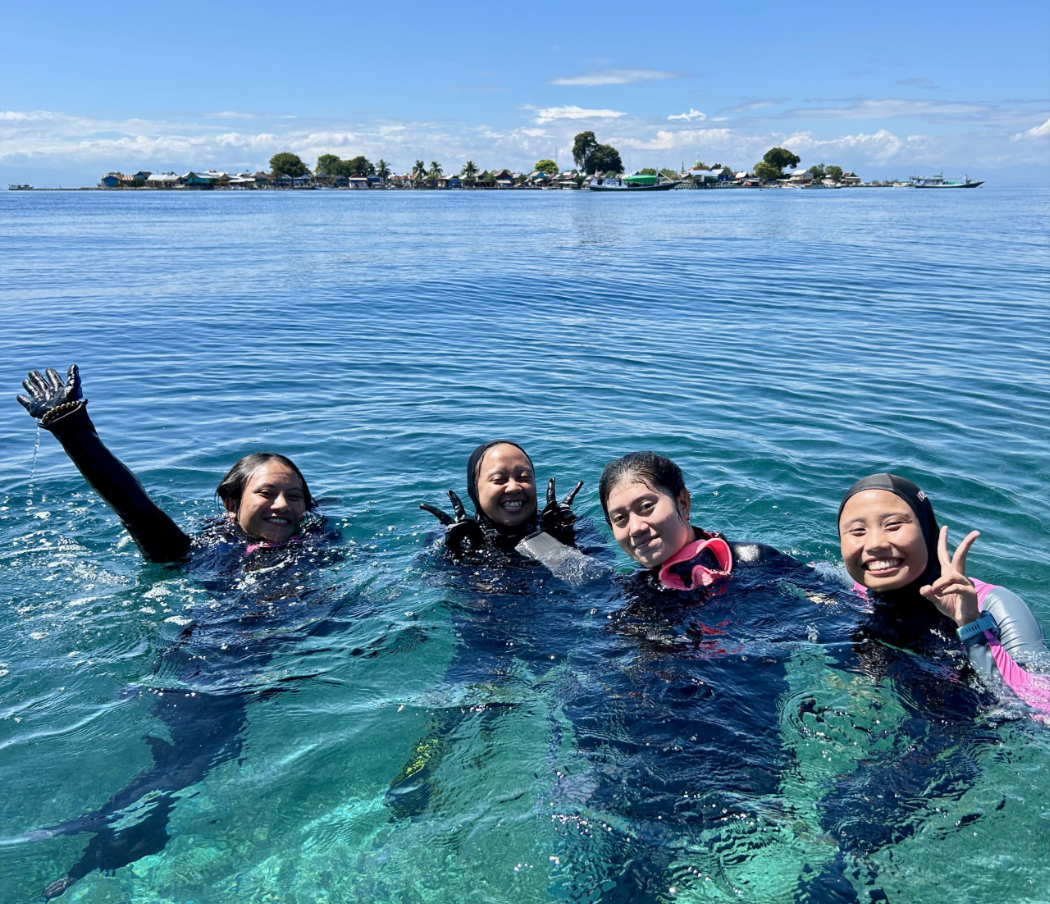
Masters students Gita Alisa, Jane Cita, Maserati and Rindah Vida celebrate a successful fortnight of ecological data collection at the restored coral reefs around Pulu Bontosua.
The team give an update from the trip:
For the last three years, our international team of coral reef ecologists – led by Dr. Tries Razak and Dr. Tim Lamont – have enjoyed working alongside the Mars team in Spermonde on a research programme that supports the coral restoration work. Our aim is to better understand the way the restored reefs at Bontosua function as ecosystems, ultimately helping to improve restoration techniques. We’re grateful to have our research funded by the Royal Commission of 1851, the Fisheries Society of the British Isles and the Pew Charitable Trust, and hosted by the Mars team, UNHAS university and the Pulau Bontosua community.
This year, we were delighted to have six postgraduate students leading their own research projects:
Jane Cita (IPB University) and Maserati (Padjadjaran University) collected data on the community composition and behavior of the fishes living on restored reefs. They are comparing this with equivalent measures on natural healthy reefs in the area, to understand how coral restoration is impacting local fish communities. Jane and Maserati worked alongside the Mars team’s fish experts Permas Maulana and Abeng Tanri Abeng to collect extensive data on abundance, biomass and community composition. They also measured the rates of territorial behavior exhibited by butterflyfish – a particularly charismatic and important group of fishes on coral reefs. Their early results suggest that there is an increasing diversity of fishes on restored reefs as the reefs get older and more mature.
Now, Maserati and Jane head to the UK for a four month research placement, where they will complete their data analyses, write-up their Masters program dissertations, and continue their ongoing collaborative work with Dr Tim Lamont and his team at Lancaster University. They’re excited about this opportunity, and grateful to Sheba Hope Grows for helping to fund this international research visit.
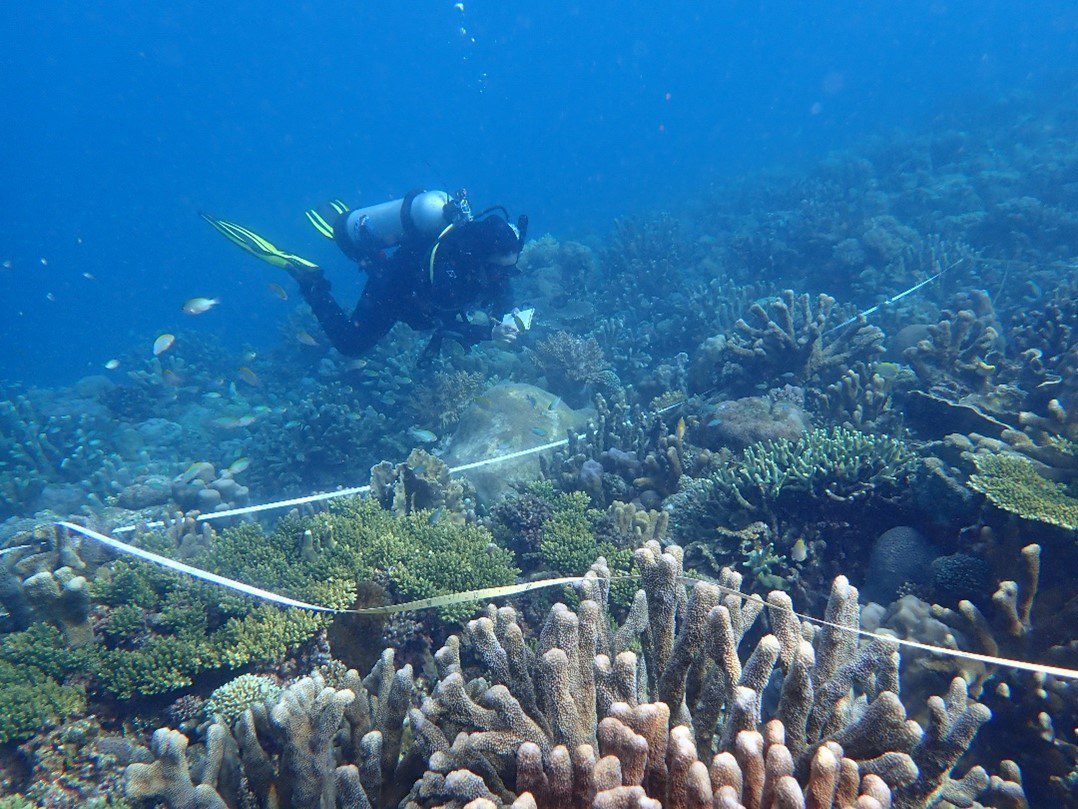
Jane Cita carrying out fish surveys at Pulau Bontosua to quantify the community development of fishes on the restored reefs.
Rindah Vida (IPB University) continued her research creating 3D computer models of the restored reefs, in order to accurately calculate the amount and complexity of reef habitat created by restoration. This year she also teamed up with John Stratford (Newcastle/AIMS), who helped to develop more efficient and low-cost pipelines for this method. John and Rindah worked primarily with Mars’ photogrammetry specialists Irwan Sija and Esya Agiel Hidayat. Look out for the first publication from this work stream coming out soon – Rindah and the team’s first paper on this topic has just been accepted for publication at Restoration Ecology, and we look forward to seeing it published soon!
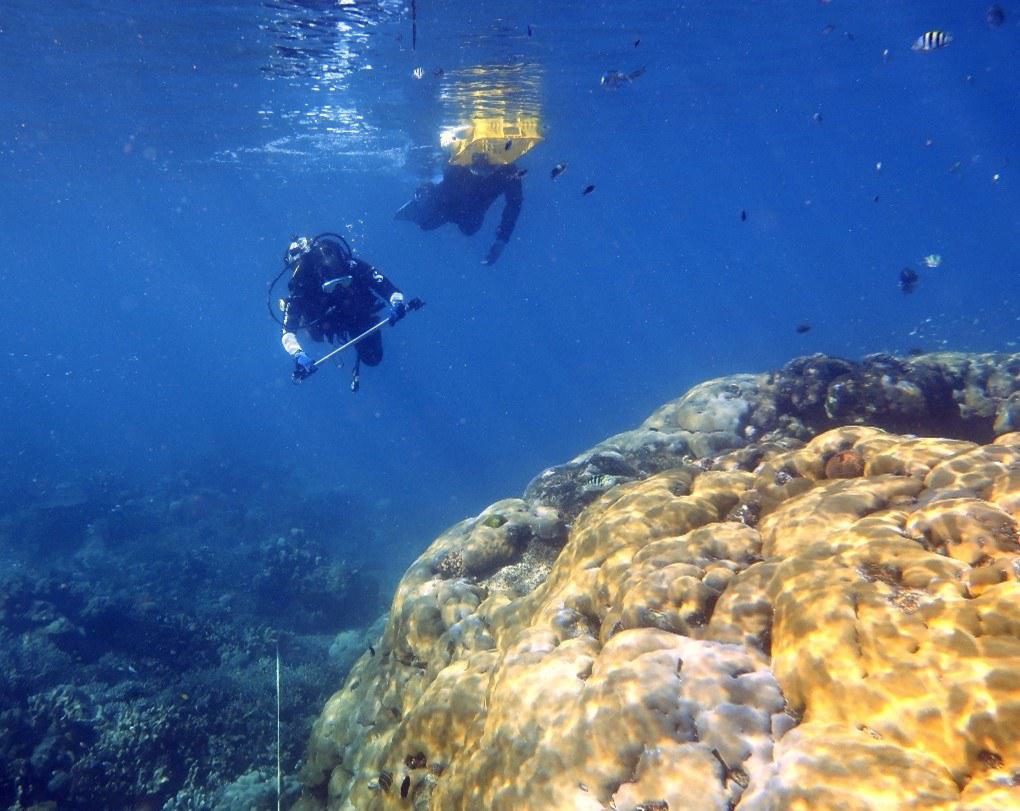
Rindah Vida and John Stratford carry out photogrammetry over a large coral bommie at Pulau Bontosua.
Gita Alisa (IPB University) collected data on how Reef Stars help to stabilize loose coral rubble in the wake of storms that hit the reef. She’s been tracking the recovery of coral cover in a storm-impacted area of the reef for the last 18 months, with the help of Suandar and Permas Maulana. Her early results indicate that Reef Stars help with the consolidation of deep, stable rubble beds that facilitate coral recovery. Gita will complete her analysis and write-up over the next six months, and we look forward to seeing more detailed results and conclusions emerging from this work.
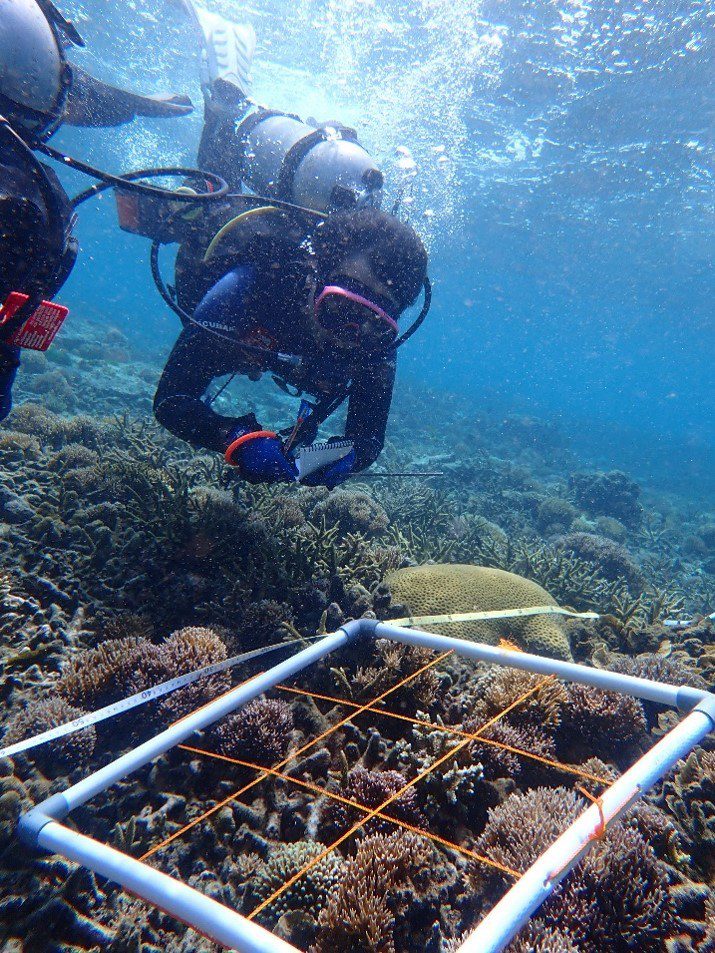
Gita Alisa quantifies rubble characteristics in a previously storm-impacted site at Pulau Bontosua.
Ben Williams (University College London) continued his award-winning research on coral reef bioacoustics, where he’s working to quantify the number of fish vocalisations in the soundscape of restored reefs. His research is described in detail in this previous blog post, and on this trip it was great to also host Ben’s collaborators Lauren Harrell and Jenny Hamer from the Google Research Labs.
In summary, we were delighted to hold another successful field trip where scientists from around the world came to collaborate with the Mars Indonesia team, together learning more about the ecological impacts of this large-scale coral restoration project. We’re excited for further developments and more results emerging – we’ll keep you posted!
You can hear more updates and find out more by following the science project team on @shebahopegrows.
Dr Tries Razak https://x.com/TriesRazak
Dr Tim Lamont https://x.com/TimACLamont
Gita Alisa https://x.com/gitaal_
Rindah Vida https://x.com/rindahvida
John Stratford https://x.com/JohnStratford_
Ben Williams https://x.com/BenWilliamsSci

